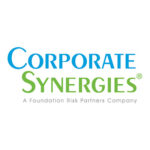The $1.9 trillion American Rescue Plan Act of 2021, signed by President Joe Biden on March 11, 2021, includes much-needed relief and stimulus funds for employees and businesses suffering from the impact of the ongoing COVID-19 pandemic. The new law includes, among other provisions, $400 billion for $1,400 direct payments to most Americans and increased funding for vaccine distribution, school re-openings, small business grants, pension funds and unemployment assistance. Most relevant to employers, the law expands COBRA subsidies, expands Affordable Care Act (ACA) Exchange subsidies, extends family and sick leave tax credits and significantly increases the maximum contribution to dependent care FSAs. Notably, the American Rescue Plan Act requirements also include changes to COBRA notifications.
Expanded COBRA Subsidies
The new law includes a 100% COBRA premium subsidy for any employee or dependent who is a COBRA qualified beneficiary (or will become one), resulting from an involuntary termination or reduction of hours. Employees who voluntarily terminate employment are not eligible for the COBRA premium subsidy. The COBRA premium subsidy goes into effect on April 1, 2021 and ends on September 30, 2021.
The American Rescue Plan Act requirements regarding COBRA subsidy rules will likely create administrative challenges for employers.
This expansion comes with specific requirements for employers to update COBRA notices (or include in a separate notice) describing the premium subsidy to all eligible individuals. Failure to provide such a notice will be treated as a failure of the COBRA notice requirements. Employers must also provide notification of any early termination of the premium subsidy prior to September 30, 2021. The U.S. Department of Labor will be providing model notices for both in the coming weeks.
Employers will receive a credit for the COBRA premium subsidy through a payroll tax credit against the employer’s quarterly taxes. If the credit exceeds the amount of payroll taxes due, the credit will be refundable when the employer submits its quarterly federal tax return (i.e., IRS Form 941).
Employers and plan sponsors should not assume that their COBRA administrators or vendors will automatically make the necessary adjustments. Rather, employers should work closely with their COBRA administrators and vendors to identify any eligible individuals and to ensure that they will be receiving the appropriate notices and that their subsidies will be distributed properly.
Expanded ACA Subsidies
While the law’s new expanded ACA subsidies don’t directly impact employers, they may indirectly increase employers’ potential exposure to ACA Employer Shared Responsibility (ESR) penalties since many more individuals are likely to sign up for Exchange coverage and qualify for premium tax credits. That can trigger more ESR penalties against employers that are not offering health insurance coverage that meets the ACA’s minimum standards. While approximately 14 million people are enrolled on the ACA Exchanges now, the Congressional Budget Office has estimated that an additional 1.7 million people would enroll in the Exchanges under the new law, about 1.3 million of whom are currently uninsured.
In a move we expected to see, the law’s more generous ACA subsidies put an end to the “subsidy cliff” by limiting the amount of money that any individual would have to pay for health insurance through the end of 2022 at 8.5% of a household’s income. The subsidy cliff refers to the termination of health insurance premium subsidies on Exchanges for households earning over 400% of the federal poverty line (FPL), which is equal to approximately $51,000 per year for an individual.
Extended Family and Sick Leave Tax Credits and FSA Contributions
The law also extends certain family and sick leave tax credits available under the FFCRA through September 30, 2021. The FFCRA required employers with less than 500 employees to provide COVID-19-related paid family leave and paid sick leave and established corresponding tax credits. This leave mandate expired on December 31, 2020, and has not been renewed, but the new law extends the tax credits for qualifying family leave and sick leave wages that an employer voluntarily pays between April 1, 2021, and September 30, 2021. Additionally, the law:
- makes leave taken due to a COVID-19 vaccination qualify;
- designates March 31, 2021 as a reset date for counting paid sick leave;
- increases the total number of days of eligible family leave from 50 days to 60 days (thereby increasing the total amount of wages eligible for the tax credit from $10,000 to $12,000 (plus health plan expenses properly allocable to qualifying leave); and
- allows 501(c)(1) governmental organizations to participate.
The maximum amount of dependent care FSA benefits that can be excluded from income is temporarily increased from $5,000 to $10,500 for the tax year of 2021. Plans can be amended retroactively for the change if the amendment is adopted by the last day of the plan year in which the amendment is effective and the plan is operated in accordance with the amendment’s terms beginning on its effective date.
Next Steps
Employers and plan sponsors should review and discuss the new COBRA rules with their COBRA administrators and vendors, as well as insurance carrier representatives and third-party administrators, to ensure that participants and COBRA beneficiaries are properly notified of the law’s changes and the required subsidies.
Additionally, in light of the ways that the American Rescue Plan Act will make Exchange coverage much more attractive to employees, and the greater potential for ACA ESR penalty exposure that may result, employers subject to the ACA should review their health plan offerings to ensure that they meet the ACA’s minimum standards.
For full details on the American Rescue Plan Act requirements, please see the March 11 Compliance Alert on the Compliance Resource Page.





